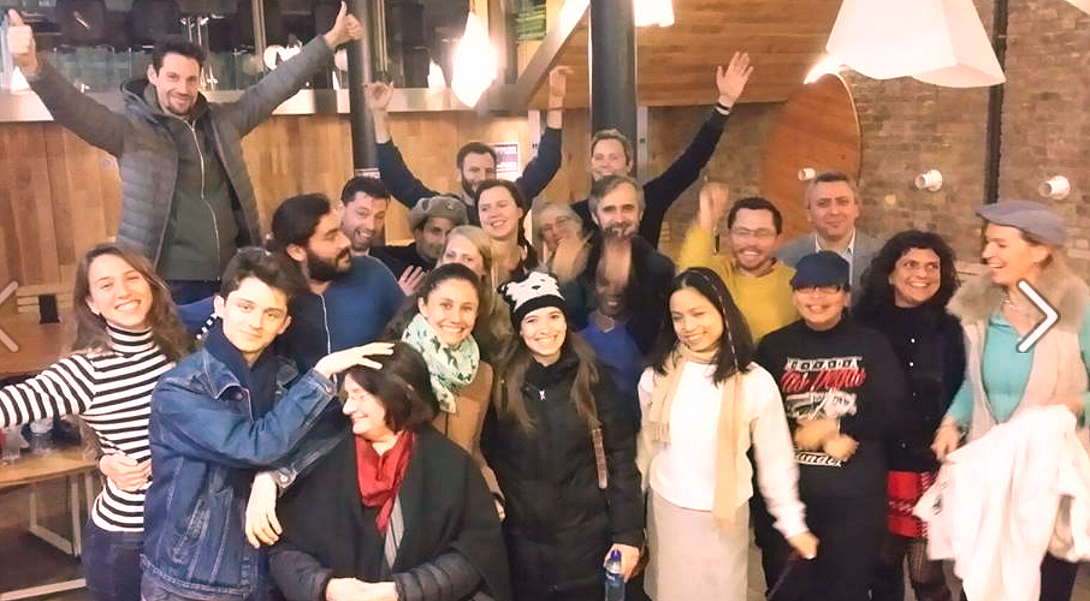Dinis Guarda interviews the co-founders of SuperRare, John Crains, the CEO, and Jonathan Perkins, the CPO of the platform in the latest episode of his YouTube podcast to discuss the current trends in digital art industry and its evolution with advancements in AI and immersive technologies. The podcast is powered by Businessabc.net and citiesabc.com.

SuperRare is the premiere curated marketplace to issue, collect, and trade rare digital art backed by non-fungible tokens (NFTs) on the Ethereum blockchain. During the interview, CEO John Crains tells Dinis that the mission of SuperRare is to create a platform that connects collectors with the world’s best artists. Co-Founded in 2018 by John Crains, Jonathan Perkins, and Charles Crains, the platform houses a community of cryptoart legends like Coldie, XCOPY, Upheaver, Hackatao, and Killer Acid.
“We have really focussed on building tools that empower artists and creators in this new economy. SuperRare helps artists in discovery and control everything they create”, adds CFO, Jonathan. Of the current global NFT market cap of $67.29 Billion, SuperRare contributes about $592 million to the overall.
“NFT space is flourishing with experimentation. There are different ways of tying those NFTs to different wallets, and blockchains, while experimenting with creating identity. But for a buyer, it is a complex network in order to really dig into and understand this space. Our Rare Protocol solves this problem through open and crowdsourced data”, said Jonathan, highlighting the need for blockchain based decentralised systems of art creation.
Jonathan further explained the Rare Protocol, an open curation protocol for digital art and culture. From the pioneering experiments blending art with blockchain between 2015-2017, to the explosive evolution in 2021, Rare Protocol is an expansive leap forward, enhancing the marketplace that started it all, and introducing a novel system for on-chain curation, reputation, and discovery.
How SuperRare ensures the autonomy and sovereignty of an artist
Decentralising curation, leveraged by blockchain technology tools, enable the creation of verifiable and unalterable records of individuals’ reputations, ensuring accountability and reliability in decision-making processes. In other words, decentralised curation allows users to gain greater autonomy over their online identities and contributions.
Explaining the decentralised autonomous organisation (DAO) of SuperRare, Jonathan told Dinis:
“One of the most interesting and important components of Rare Protocol is the creator verification. With this Protocol, we are piloting a peer-to-peer staking system that we call curation staking. Anyone can stake and use our $RARE tokens on a wallet address of any creator or collector that they support.”
SuperRare was the first NFT art marketplace to offer artist royalties in perpetuity with each secondary market sale. SuperRare also pioneered collector royalties, incentivising both artists and collectors to engage with one another and participate in the NFT art community.
By adopting the “Coldie Method” of auctions and pioneering the concept of independent galleries known as Spaces within its ecosystem, SuperRare fosters a dynamic and inclusive platform for artists and collectors alike. With a collection of over 38,000 artworks and artists earning over $182 million, the platform has also been instrumental in generating $9 million in artist royalties.
The SuperRare art curation in the era of AI and immersive technologies
In the past few years, art curation has undergone a profound transformation, blending traditional practices with innovative approaches to redefine the boundaries of artistic expression and audience engagement. Artificial intelligence plays a pivotal role in revolutionising the curation process, leveraging algorithms to analyse vast collections of artworks, identify patterns, and generate insights that inform curatorial decisions.
“SuperRare artists were some of the early adopters of AI”, says John. “When you combine art and AI, it gets very interesting because you now have this pristine provenance record where you can authenticate and verify nearly any piece of art.”
Through machine learning algorithms, curators can uncover hidden connections between artworks, curate thematic exhibitions, and personalise recommendations for visitors, thereby enhancing the accessibility and relevance of art in the digital age.
Additionally, immersive technologies such as virtual and augmented reality offer unprecedented opportunities for curators to create immersive art experiences, transcending physical limitations and providing audiences with interactive journeys through virtual galleries, allowing for deeper engagement and emotional resonance with artworks.
“The deeper, the richer, the better experiences coming from these projects and these developers, the better the value proposition of digital art. The metaverse is not the entirety of the answer, but the NFTs are sort of property rights management within the metaverse”, says Jonathan.

With a driving passion to create a relatable content, Pallavi progressed from writing as a freelancer to full-time professional. Science, innovation, technology, economics are very few (but not limiting) fields she zealous about. Reading, writing, and teaching are the other activities she loves to get involved beyond content writing for intelligenthq.com, citiesabc.com, and openbusinesscouncil.org




























